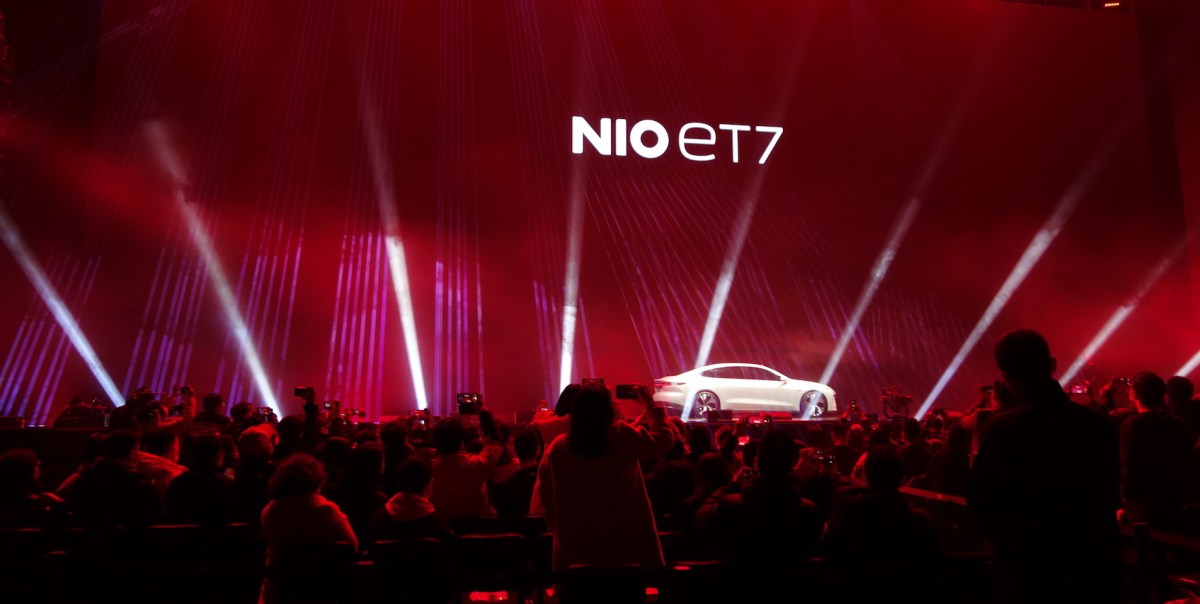Electric vehicle maker NIO on Saturday released what the company called “its first autonomous driving model” which could prove a game changer in its competition against Tesla and German automakers in China’s premium auto market.
The company’s first production sedan, the ET7, features a top-of-the-line hardware stack for self driving, including 11 8-megapixel cameras, a dozen ultrasonic sensors, and a Lidar which scans the environment at a range of 500 meters.
All of those sensors will be powered by four of Nvidia’s latest AD processors, the Orin, each offering 254 trillion operations per second (or TOPS), versus Tesla’s 144 TOPs for its hardware version 3.0 self-driving computer. Together, the computing power of NIO’s so-called Adam Super Computer exceeds 1,000 TOPS, the highest for current production models worldwide.
The seven-year-old EV maker is now publicly confident about its chances of beating big auto names with this latest offering. Its sales forecast for the ET7 surpasses those of Tesla’s Model S and BMW’s 5 Series sedans, Chinese media reported Saturday citing CEO William Li. In a separate interview with reporters on Sunday, Li said the ET7 could be a big hit in the Chinese luxury market, and that sales will gradually meet its target after production ramp-up with suppliers.
With a price range from RMB 378,000 to RMB 506,000 (around $58,360 to $78,130) before subsidies, the new offering is expected to further differentiate NIO not just from its Chinese peers, but Tesla as well. The US EV giant this month began selling China-built Model Y crossovers with a starting price of RMB 339,900, a price 30% lower than its imported version, following a 25% reduction on the price of its basic version Model 3 last year.
NIO said that it will not take a similar approach, reaffirming its goal to become a mainstream, premium EV brand in China targeting BMW, Mercedes-Benz, and Audi. Tesla is China’s most dominant EV player by sales volume, with deliveries of 113,649 China-made Model 3 vehicles from January to November last year, according to figures from China Passenger Car Association.
Xpeng Motors, another Chinese Tesla challenger, is similarly looking to quickly grow its share of the market. On Thursday the automaker revealed plans to launch in 2021 a new sedan model equipped with a Lidar sensor. The Alibaba-backed EV company has delivered 15,062 of its first sedan, the P7, in six months from late June to December.
Updated: added six-month time frame for Xpeng’s unit deliveries in 2020 in last paragraph.

